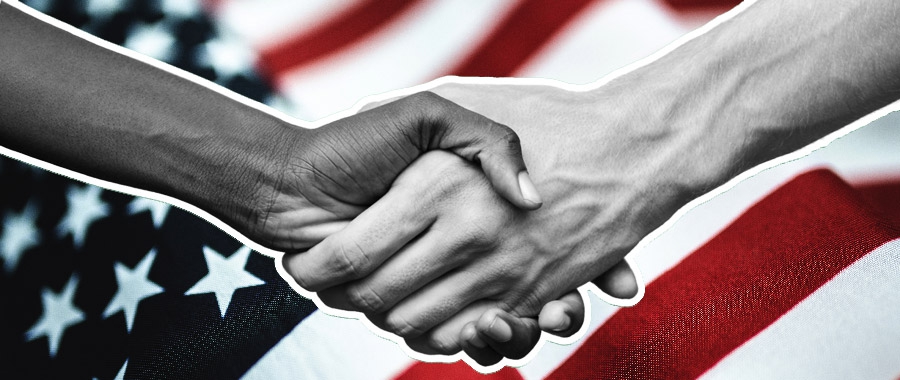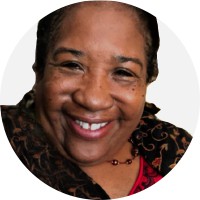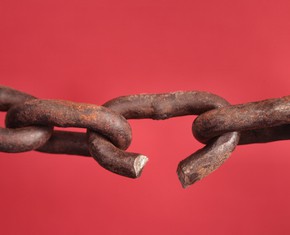The views expressed in our content reflect individual perspectives and do not represent the authoritative views of the Baha'i Faith.
To treat the patent evil of racial prejudice and discrimination takes individual courage and personal resolve – but how can we treat the root societal causes and not just the symptoms?
To heal these scourges of the human spirit in our society requires knowledge, individual and collective learning, making conscious efforts to seek the truth, and practicing justice consistently and vigorously.
Where do we start? The Baha’i teachings say that “Truthfulness is the foundation of all the virtues of the world of humanity.” – Abdu’l-Baha, Baha’i World Faith. As a foundation for achieving racial justice, I can testify, truth is essential and inviolate: nothing can withstand a weak foundation.
So let’s begin with the truth.
Today American society, roiled by its imperfect and unjust foundation, has divided and polarized itself, because the foundational truths that American culture holds as self-evident are not evident for significant portions of our population.
Perhaps we can trace this division and disunity back to the untruths and omissions within our educational system about how the United States was founded and developed over that past 243 years, many of them perpetrated by faulty notions of meritocracy and inherent abilities based on race. Also, we could assign some responsibility to the enervating effects of a consumerist material society, which tends to value and elevate things over people.
Despite these deep cultural causes, how do we “bring ourselves to account” as the Baha’i writings recommend, to look at ourselves in the mirror and frankly and truthfully ask: “What am I doing or not doing each day to perpetuate these conditions? Am I making efforts to get out of my racial comfort zone, to build community and meaningful relationships with people who are not like me? Am I demonstrating by my spontaneous and intimate associations with people unlike me that we all truly come from one family, one human race? Do I recognize that my personal happiness and well-being cannot be sustained by someone else’s misery? Even if I didn’t directly cause this misery, am I still accountable as a member of this society?”
In her best-selling book White Fragility: Why It’s So Hard for White People to Talk about Racism, author Robin DiAngelo addressed these questions, sharing a candid example from her own journey to eliminate racism in her own thoughts and mind. During a work meeting, DiAngelo said something offensive to one of her African American colleagues. After realizing her offhand remark had disturbed her colleague, Dr. DiAngelo took steps to make amends, to own her words, to “clean it up” in an attempt to maintain the relationship with her African American colleague without becoming defensive. Importantly, Dr. DiAngelo did not attempt to make her colleague feel responsible for her own learning about the impact of her own racial comments.
In this truthful, candid way, each person can learn to help people of both races develop constructive discourse about race and white supremacy. Dr. DiAngelo’s motivation to immediately clean up her speech strikingly reflects the Baha’i concepts of truthfulness and consultation. Frank, truthful consultation, one of the fundamental practices within the Baha’i community, encourages Baha’is “to take counsel together in all matters,” lighting “the lamp of guidance which leadeth the way” and becoming “the bestower of understanding.” – Baha’u’llah, Tablets of Baha’u’llah
In fact, the Baha’i teachings ask us to do something that many people find quite difficult – to freely express our own opinions and listen carefully to the opinions of others without taking offense or feeling hurt:
… take counsel together in such wise that no occasion for ill-feeling or discord may arise. This can be attained when every member expresseth with absolute freedom his own opinion and setteth forth his argument. Should anyone oppose, he must on no account feel hurt for not until matters are fully discussed can the right way be revealed. The shining spark of truth cometh forth only after the clash of differing opinions. – Abdu’l-Baha, Selections from the Writings of Abdu’l-Baha
Baha’i consultation – listening, speaking and seeking the truth from each other – gives anyone who practices it an effective means of facing “the most vital and challenging issue” of eliminating racial prejudice, a human disease that the Baha’i writings state has “bitten into the fiber” and “attacked the whole social structure of American society …” – Shoghi Effendi, The Advent of Divine Justice
This is not easy. The Baha’i teachings emphasize that a “tremendous effort is required by both races” in “tearing down the barriers that now divide” us, while “casting away once and for all the fallacious doctrine of racial superiority.” – Ibid
Although the Guardian of the Baha’i Faith wrote these words over 80 years ago, they ring just as true today. However, this notion of exerting “tremendous effort” seems easier said than done. The need for tremendous effort recognizes the reality that every sphere of American society – its government, its institutions, its culture, its language, its policies and its media – has contracted the disease of white supremacy, and the social, economic and material privileges associated with white skin. As a result, America has an urgent need for those who seek to establish race unity to immerse themselves in knowledge, to engage in truthful, honest discourse with people of all races, and to demonstrate through actions, associations, lifestyle and culture their personal commitment to eliminate this virulent disease:
Freedom from racial prejudice, in any of its forms, should, at such a time as this when an increasingly large section of the human race is falling a victim to its devastating ferocity, be adopted as the watchword of the entire body of the American [Baha’is], in whichever state they reside, in whatever circles they move, whatever their age, traditions, tastes, and habits. – Ibid
















Comments
Sign in or create an account
Continue with Googleor